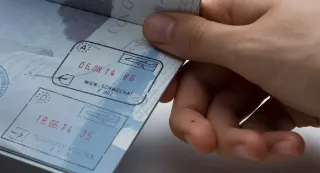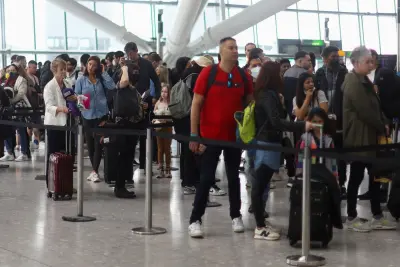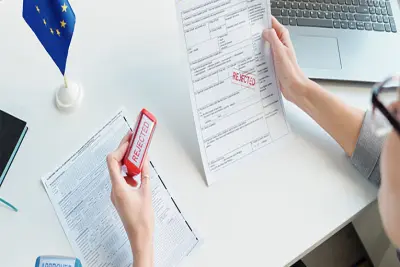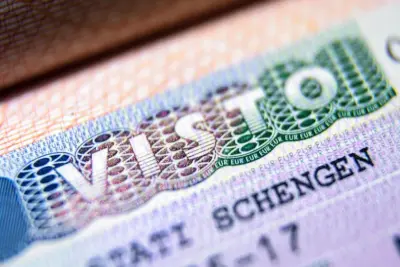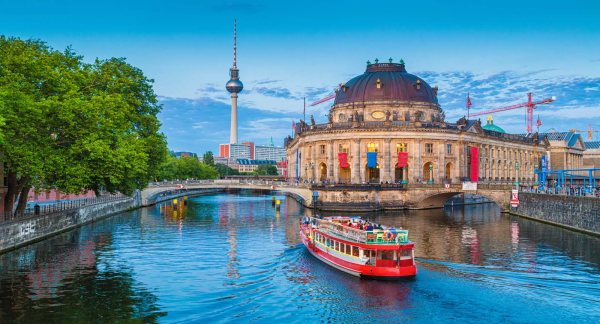Let's break down exactly who needs a Schengen visa and what specific requirements apply based on your nationality. The rules can vary significantly depending on your passport, and understanding these differences is crucial for planning your European adventure.
For American travelers, the situation is relatively straightforward. The Schengen visa for US citizens process is actually quite different from many other nationalities because US citizens don't need a visa for short stays. Americans can enter the Schengen Area for up to 90 days within any 180-day period for tourism, business, or transit purposes without obtaining a visa.
However, starting in 2025, US citizens will need to register for ETIAS (European Travel Information and Authorization System) before traveling, though this isn't technically a visa – it's more like a pre-travel authorization. If you're applying for the Schengen visa from USA for non-US citizens, it's prudent to stay up-to-date on ETIAS requirements and when they take effect or get modified as this could vary from one nationality to another. Additionally, the Schengen visa for Green Card holders also has its unique requirements worth learning, whether you're getting the Schengen visa from USA or elsewhere.
Many other countries enjoy similar visa-free privileges in the Schengen Area. Citizens of visa-free Schengen countries include places like Canada, Japan, South Korea, New Zealand, and Australia. These travelers can also stay for up to 90 days without a visa. However, like US citizens, they'll need to complete an ETIAS application starting in 2025. It's important to note that visa-free travel doesn't mean paperwork-free travel – you still need to prove the purpose of your visit and show sufficient funds when entering.
The Brexit situation has created new considerations for British travelers. Since the UK's exit from the European Union, British citizens are now treated as third-country nationals. While they can still enter the Schengen Area without a visa for short stays, they're subject to the same 90/180-day rule as other visa-exempt nationals. British travelers also need to ensure their passports are valid for at least six months beyond their planned stay and were issued within the last ten years.
For nationalities that do require this type of Europe travel visa, the application process involves more extensive documentation. These travelers need to provide proof of accommodation, travel insurance, a photo that meets all the Schengen visa photo requirements, sufficient funds, and a detailed itinerary. The requirements can be even more stringent for certain nationalities, possibly including additional documents like employment verification, bank statements for several months, or proof of ties to their home country.
Business travelers face additional requirements regardless of nationality. Even if you're from a visa-free country, engaging in certain types of business activities might require a visa or work permit. This is particularly important for activities that go beyond attending meetings or conferences, such as providing paid services or working temporarily in a Schengen country. So, if you're planning on getting the Italy Schengen visa to explore big fashion names' works but might be tempted to set up an import deal, you need to consider the implications on your visa.
The length of allowed stay can vary significantly based on both nationality and visa type. While the standard tourist stay limit is 90 days, some nationalities might be restricted to shorter periods or might need to apply for special permits for longer stays. It's crucial to understand these limitations to avoid overstaying, which can result in fines and future travel restrictions.
Recent changes in global travel have introduced new considerations. Many countries now require additional health documentation or proof of travel insurance for Schengen visa permissions that specifically covers COVID-related issues. These requirements can change quickly, so it's essential to check the latest updates before traveling, even if you're from a visa-free country.
For students and researchers, the requirements can differ based on the length and purpose of study. Short courses under 90 days might be covered by visa-free travel for eligible nationalities, but longer academic programs always require a national visa, regardless of your passport.
Remember that visa-free entry doesn't guarantee admission to the Schengen Area. Immigration officers at the border have the final say and may ask for additional documentation, such as proof of sufficient funds, return tickets, or hotel reservations. Being well-prepared with these documents, even if you don't need a visa, will help ensure a smooth entry process.
Always check the official Schengen visa requirements through the embassy or consulate of your main destination country, as requirements can change and may vary slightly between different Schengen member states. Planning ahead and understanding exactly what you need based on your nationality will help ensure a smooth journey to Europe.






